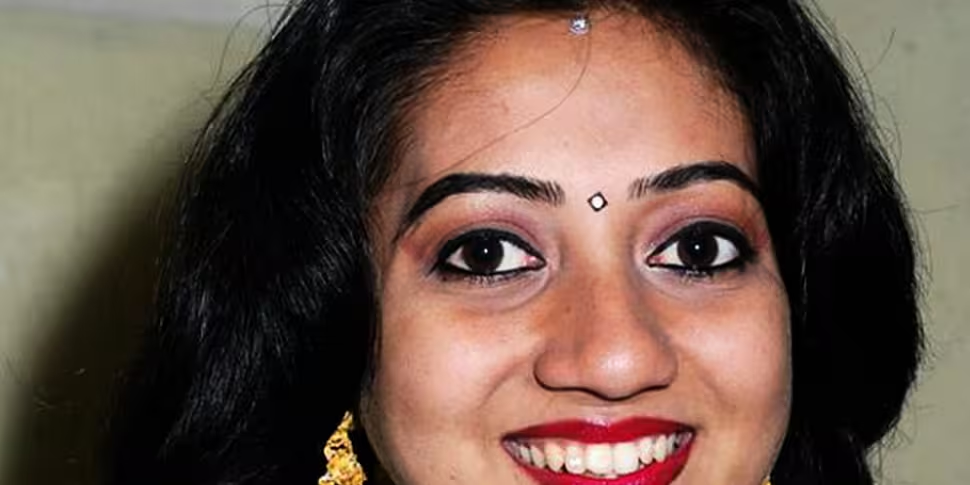Praveen Halappanavar has launched a blistering attack on the care his late wife Savita received at Galway University Hospital, calling it 'horrendous, barbaric and inhuman'.
The 31-year-old died from septicaemia on October 28th last following a miscarriage 17 weeks into her pregnancy. Her inquest has returned a verdict of medical misadventure.
Mrs. Halappanavar died from a severe infection 5 days after her request for an abortion was turned down at Galway University Hospital.

"We were always kept in the dark" - Praveen Halapanavar
All 9 recommendations were accepted by the jury at the inquest (see below). Among them is a call for the Medical Council to lay out exactly when doctors can intervene to save the life of a mother.
The verdict they returned is death by medical misadventure.
Speaking to reporters Savita's husband Praveen launched a scathing attack on the treatment his wife received in hospital.
Tony Canavan on behalf of Galway University Hospital admitted mistakes were made.
Praveen's lawyers claim the inquest has highlighted 'serious and shocking mismanagement' in Savita's care most notably the delay in treating her infection although it is accepted this did not contribute to her death.
Other recommendations from the inquest jury include the establishment of national protocols for managing sepsis and ensuring effective communication between medical and nursing staff.
Coroner Dr. Ciaran MacLoughlin gave a summary of the evidence to the jury this morning based on the 36 witnesses who testified at the inquiry.
He described Savita's final days in ICU as when the 'life of this vibrant young woman ebbed away'.
He also explained that the 11 jurors could return either a narrative verdict outlining the circumstances of Savita Halappanavar's death or a verdict of misadventure.
The jury were told a verdict of misadventure would be permissible if systemic failures or deficiencies in Savita's medical management were identified.

The coroner's 9 recommendations:
- The Medical Council should lay out exactly when a doctor can intervene to save the life of the mother in similar circumstances, which would remove doubt and fear from the doctor and also reassure the public. An Bord Altranais should have similar directives for midwives so that the two professions always complement one another.
- Blood samples should be properly followed up and proper procedures put in place to ensure errors don't occur. That would be a national recommendation.
- Protocols should be followed in the management of sepsis and there should be proper training and guidelines for all medical and nursing personnel. And that would be a national recommendation.
- Proper and effective communication to occur between staff on-call and a team coming on duty and a dedicated handover time to be set aside for such communications. That should be applied nationally.
- Protocol for sepsis written by the department of microbiology for each hospital and each hospital directorate. And that should be applied nationally.
- A modified early warning score chart should be adopted by all hospitals in the state as soon as practicable.
- There should be early and effective communications with patients and/or their relatives to ensure that a treatment plan is readily explained and understood. And this should be applied nationally.
- The medical notes and nursing notes should be separate documents and kept separate. And that should be applied nationally.
- 9 No additions should be made to the medical records of a deceased whose death is the subject of a coroner's inquiry. Additions may inhibit the inquiry and prohibit the making of recommendations which may prevent further fatalities. And that should be applied nationally.









